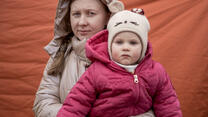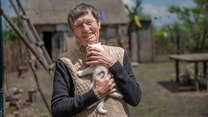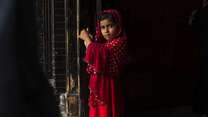I don’t make any plans, because I don’t know what I can expect. My wife applied for compensation for the ruined house, but they just said — wait. – says 68-years old man from Dnipro.
As the war in Ukraine enters its third year, the uncertainty of what lies ahead is exhausting for those caught in limbo—whether in Ukraine or abroad. Many do not know if or when they will be able to return home or reunite with their loved ones.
This uncertainty also affects European communities, which remain on alert, wondering if more people fleeing violence and war will arrive and whether they should still be prepared to host them.
After three years of working in this context, we have learned that understanding the war’s impact beyond immediate humanitarian needs is crucial for preparedness and long-term planning. This report explores the experiences of people affected by the war in Poland and Germany—the two EU countries hosting the largest Ukrainian refugee populations—as well as those who have remained in or returned to Ukraine.
It seeks to understand the motivations behind their decisions to stay, leave, or return. Are these choices driven by personal connections, support from NGOs, or government assistance?
While each story is unique, the report identifies common patterns and scenarios, highlighting shared challenges, concerns, and aspirations.
To help readers better grasp these realities, we have identified four typical experiences:
- Those whose lives are "on hold"
- Those who "live the lives of others"
- Those starting anew
- Those who (de)normalize the (un)thinkable
By recognizing these patterns, we can better prepare for the future. This understanding is especially valuable for policymakers designing social programs, organizations shaping their responses, and the international community committed to ongoing support—because solidarity has no expiration date.



